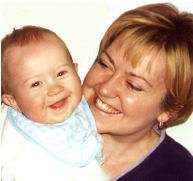We Punish Most Those Who Remind Us of Our Own Fears and Guilt
John R. Seeley
The only suspicion I have as to what is the basis of distinction between what offences are to be treated as financially fungible (ie fines) and those that are not, is a distinction on the basis of the fear-engendering properties of the so-called offence or the so-called offending actor -- fear engendering, that is, in the breasts of those who have the power to make and enforce laws.
The fear is, however, of two kinds:
(1) the fear that we might be harmed in our own persons or properties, and
(2) the fear of what lies within us.
For this purgatory purpose -- which has, of course, only a negative relation to justice -- the juvenile, or more precisely, the "youth" or adolescent, since we mostly do not deal as "delinquent" with very little children -- the juvenile to the old virtually offer themselves, like the black to the white, as ideal threat, ideal scapegoat, ideal victim. They are just at that stage of life -- having just come into sufficient physical, sexual, social, and organized competence -- for us to have magnified toward terror the fears and ambivalences we had anyway with respect to them, but could contain in virtue of our obvious physical superiority, as long as they were very little children. They are moreover now unblinkably trying out, or at least seriously thinking about (about 90% of them will commit so-called "delinquent" acts anyway), exactly those actions we have most deeply repressed or precariously controlled in ourselves. They do -- or we titillatingly imagine they do -- what we did and got away with and would fain forget or feared to do, but never ceased to yearn for, or fantasied or fantasy, but forbore to make real or have not made real as yet. We accredit them -- as Europeans used to do with "savages" (as well as with their own "youth" after they had invented it circa 1600) with strange powers and fascinating doings, enviable freedoms and reprehensible lacks of constraint, sensualities and capacities for enjoyments we imagine that, but for our virtues, we might have had; fierceness and impulses that find their true reflections more in our own unconscious than in their reality.
It is easy -- as it was with the colonizers -- to cast around these a net of law, general and special to them, formal and informal, that can be adjusted and re-adjusted until it yields up enough "cases" for us again to feel "justified" in playing out upon these the exemplary drama that deters us, not them, from realizing out there what is deepest in us, in here. The more "senseless" the civilization, the more unjust in its macro-structure and micro-structure, the more we must keep out of awareness. And the more we must keep out of awareness the greater the strain on those already over-stretched amnesic curtains. And the greater the strain, the more we require (when mere diversion will no longer suffice) others -- ideally, those about whom we are most ambivalent, our children just ceasing to be such -- to enact for us the ritual of exemplary wrong-doing, followed by purest punishment (i.e., free of any confusion with deterrence or rehabilitation or restoration of violated rights). If there is here, anywhere, a practical and justifiable question it might well be how to compensate these monitors of our well-being, without robbing them of their function by recognizing what role we have cast them for, and for whose sake..
Excerpted from an article entitled,
The Juvenile Justice System and the Helping Professions, pp
5-20, Vol 8, Nos 1-2, 197/78 of INTERCHANGE, ISSN 0020-5230.
John Seeley is perhaps best known for his book, The
Americanization of the Unconscious, published by International
Science Press, New York 1967 and distributed by J.B Lippincott
Co. LCCCN 66-29488.
